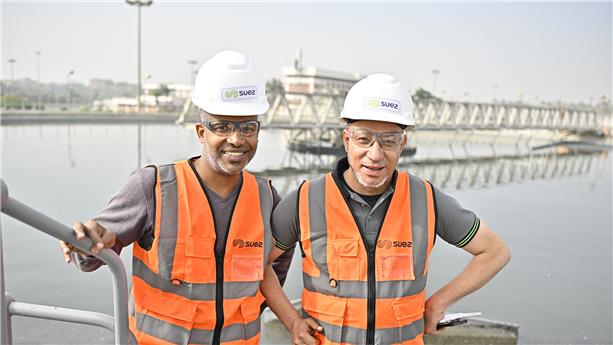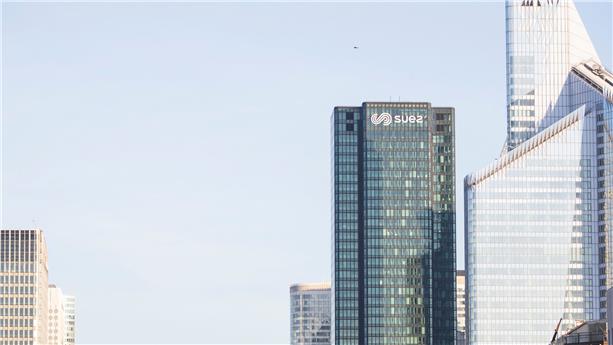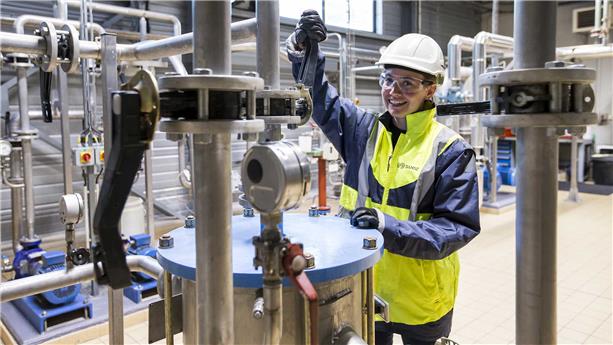
March 22: World Water Day - SUEZ, world leader in the distribution of drinking water, leverages all its expertise to protect water resources and the natural environment
In the context of rising populations and growing urbanization, the UN estimates that demand for water will increase by 50% by 2030. However, the scarcity of this resource is already a reality and a cause of major conflicts over water use. Indeed, agriculture uses 70% of the world’s water resources, manufacturers use 20%, and households use 10%. Faced with these challenges, SUEZ is leveraging its expertise and R&D capabilities to preserve water resources in order to:
- Provide as many people as possible with access to water and address water poverty,
- Guarantee the quality of water resources and the protection of the natural environment in the face of the emergence of new pollutants.
The Group invests €120 million per year in research, development and innovation. Through its 8 research & development centers, 9 laboratories and expertise centers, 530 employees working in R&D, and 1,400 experts worldwide, the Group is committed to the protection of the environment, resources and water environments.
SUEZ’s solutions to the heart of the issues
> Tackling emerging pollutants
In coordination with the CIRSEE2 and Water Technologies & Solutions Business Unit, SUEZ Group is working on the advanced treatment of PFASs in water and soil in order to optimize in real-time the treatment of these pollutants in water.
In Denmark, SUEZ will soon treat micropollutants including drug residues found in the wastewater of Aalborg Hospital, before discharging the latter into the natural environment.
In France, the Group has committed to treating microplastics in wastewater at the Thau (France) wastewater treatment plant.
> Producing alternative water, an effective solution to the problem of water access
With a global production capacity of 1,780 million m3 of alternative water per year, SUEZ is the world leader in both desalination and the reuse of wastewater. Having built more than 3,500 desalination plants , the Group has numerous municipal (Perth, Melbourne, Bahrain, Riyadh, Barka, etc.) and industrial (Petrobras and Koniambo Nickel in New Caledonia, the Chengdu chemical industry park in China, etc.) references. As a pioneer of reverse osmosis desalination technology, SUEZ has been designing and developing complementary innovative technologies since 1969 to optimize processes and to reduce operating costs and environmental impacts in order to produce drinking water from salt water in an ecological and sustainable way.
> Improving the performance of water networks
SUEZ has recently won performance contracts to reduce the volume of water lost in pipes in several cities around the world. For example, in São Paulo, SUEZ, supported by its local partners, is targeting savings of around 4,000,000 m3 in water each year, the equivalent of 1,600 Olympic swimming pools. Equally, in Panama, SUEZ was awarded a technical support contract to help the country's capital city improve the operational and economic management of its drinking water services.
> Detecting leaks by satellite
The Group operates around 300,000 km of drinking water networks worldwide. Whether it is aging infrastructure or changes in pressure or temperature, pipework is subject to major hazards that can lead to water leakage and breakage. To prevent these damages, the Group is joining forces with new players and forming partnerships, such as the one with Utilis, to use satellites to detect leaks. With this technology inspired by research on the water of other planets, the Group is planning to cover 12,000 km of pipework in Belgium and contribute to reducing leaks by at least 15% for the regions of South Staffordshire and Cambridge in the United Kingdom.
> Real-time monitoring of water consumption
As a world leader in smart water, the Group has developed several real-time management solutions including the On’Connect and Aquadvanced® ranges in order to support customers in the management of their water use, and smart water meters for water and wastewater treatment networks. To date, SUEZ has sold 5 million smart water meters worldwide, including 2.6 million in France and 1.8 million in Spain. These water meters enable faster detection of leaks in networks and significantly reduce water consumption in the home.
2 SUEZ’s Paris-based International Water and Environmental Research Center


